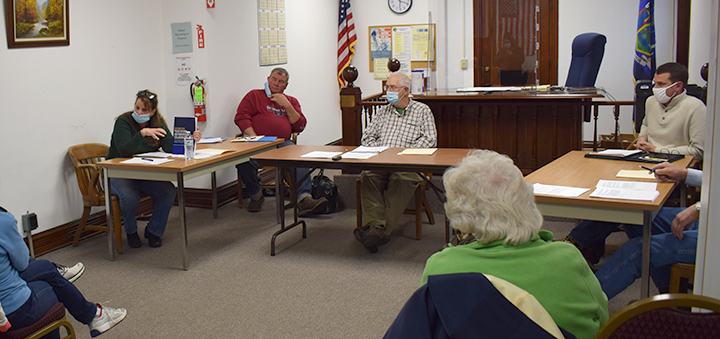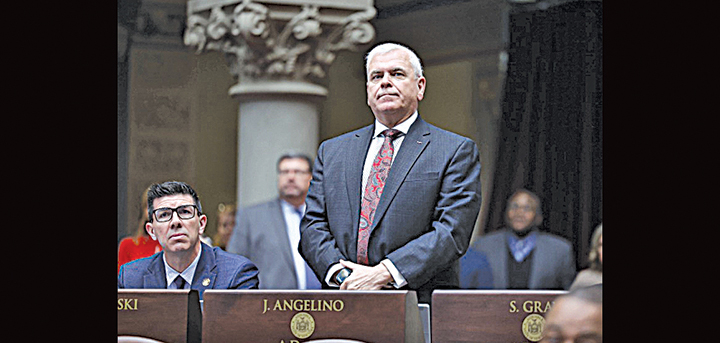New Berlin’s struggle with abolishing local PD highlights COVID fiscal challenges
New Berlin Councilwoman Wendy Rifanburg holds up the New York State Police Reform and Reinvention Collaboration booklet that contains a new range of expectations by the state for municipalities and police. To the right Councilman John Parks, Supervisor Robert Starr and Councilman Josh Burchill look on. (Photo by Tyler Murphy)
NEW BERLIN – The public hearing asked residents to give feedback to the New Berlin town board about the proposed referendum to defund the New Berlin Police Department. And residents obliged.
Afterwards, in a spilt vote, the board voted to remove the police department from the town’s laws, and then they voted unanimously to hold a public referendum, leaving the final decision to abolish the PD up to town voters.
The public is heard:
“I’ve got a question,” said New Berlin resident and emergency services volunteer Claude Chase at Tuesday’s public hearing.
“We know Chenango County and the whole state right now during this COVID mess, the domestic violence cases are on the rise. Am I right or wrong on that?”
“Yes. They are,” said Town of New Berlin Supervisor Robert Starr.
“Without these guys being in the neighborhood they’re on the edge waiting on 34 to 45 minutes for a deputy, sometimes up to an hour for a state trooper,” said Chase. “These guys are the eyes and ears for the fire department and the ambulance service. Ever since I’ve been here.”
Starr, “Totally agree.”
“They help us anytime we need it. They help us roll on calls when we have no idea what we are going into,” said Chase.











Comments